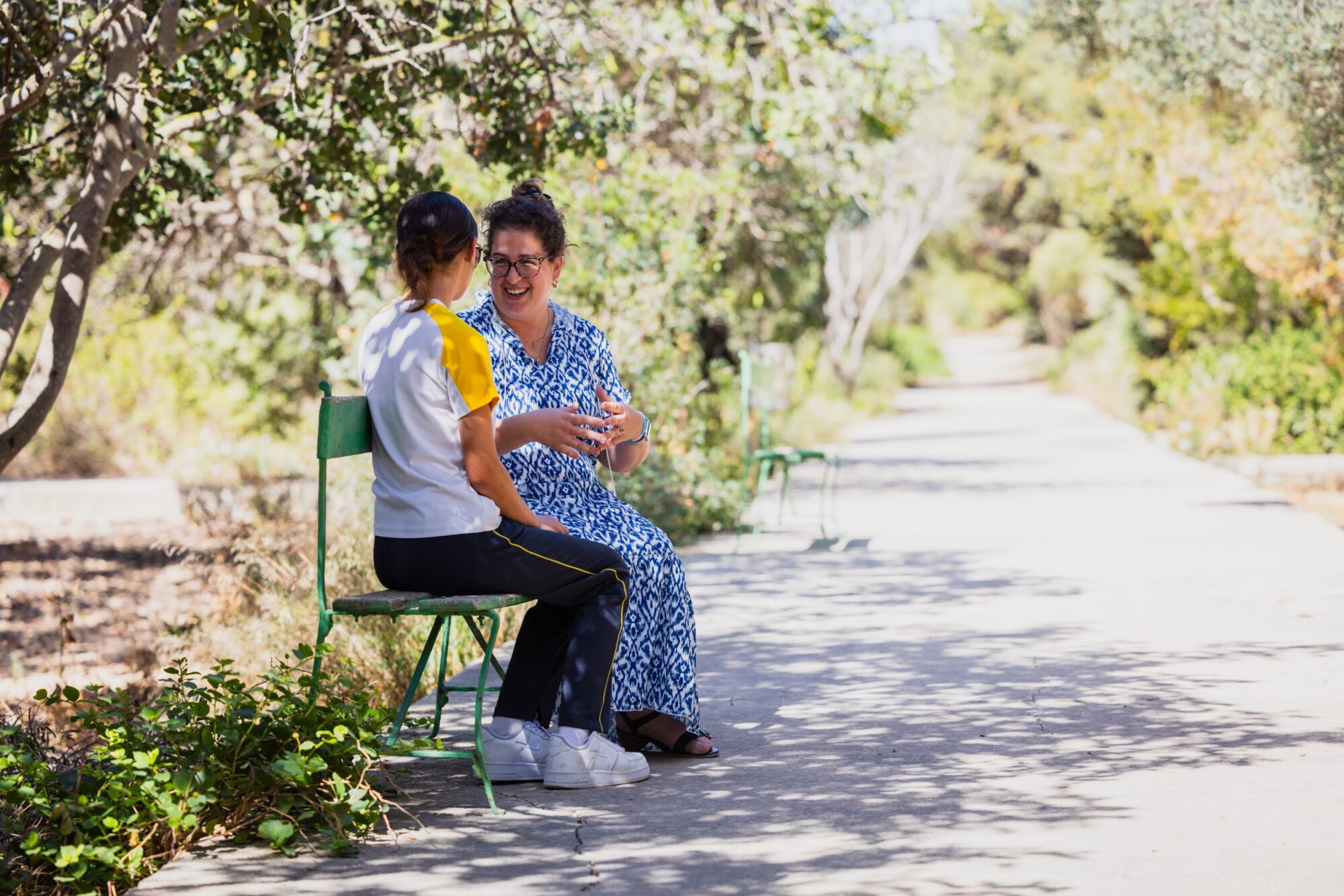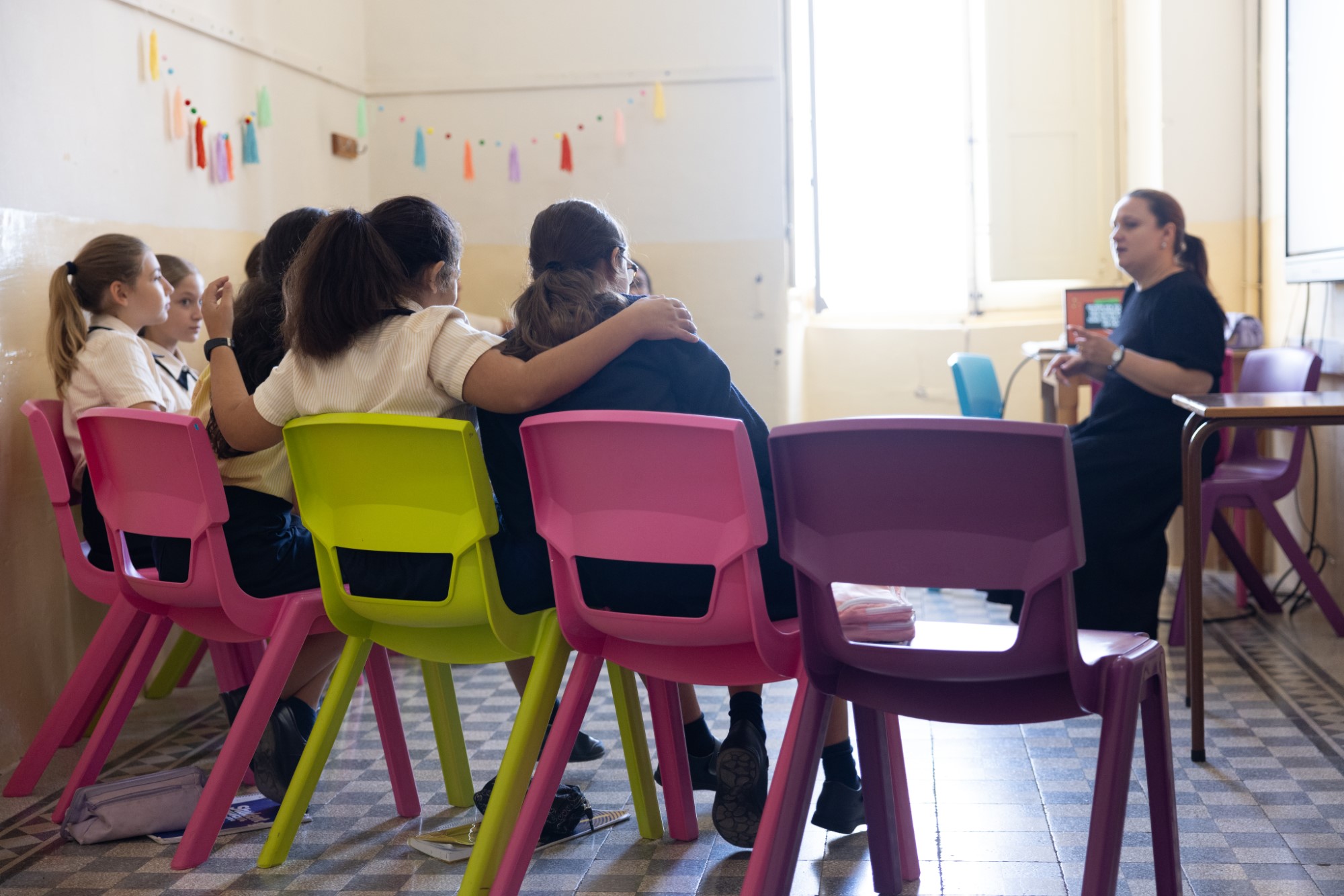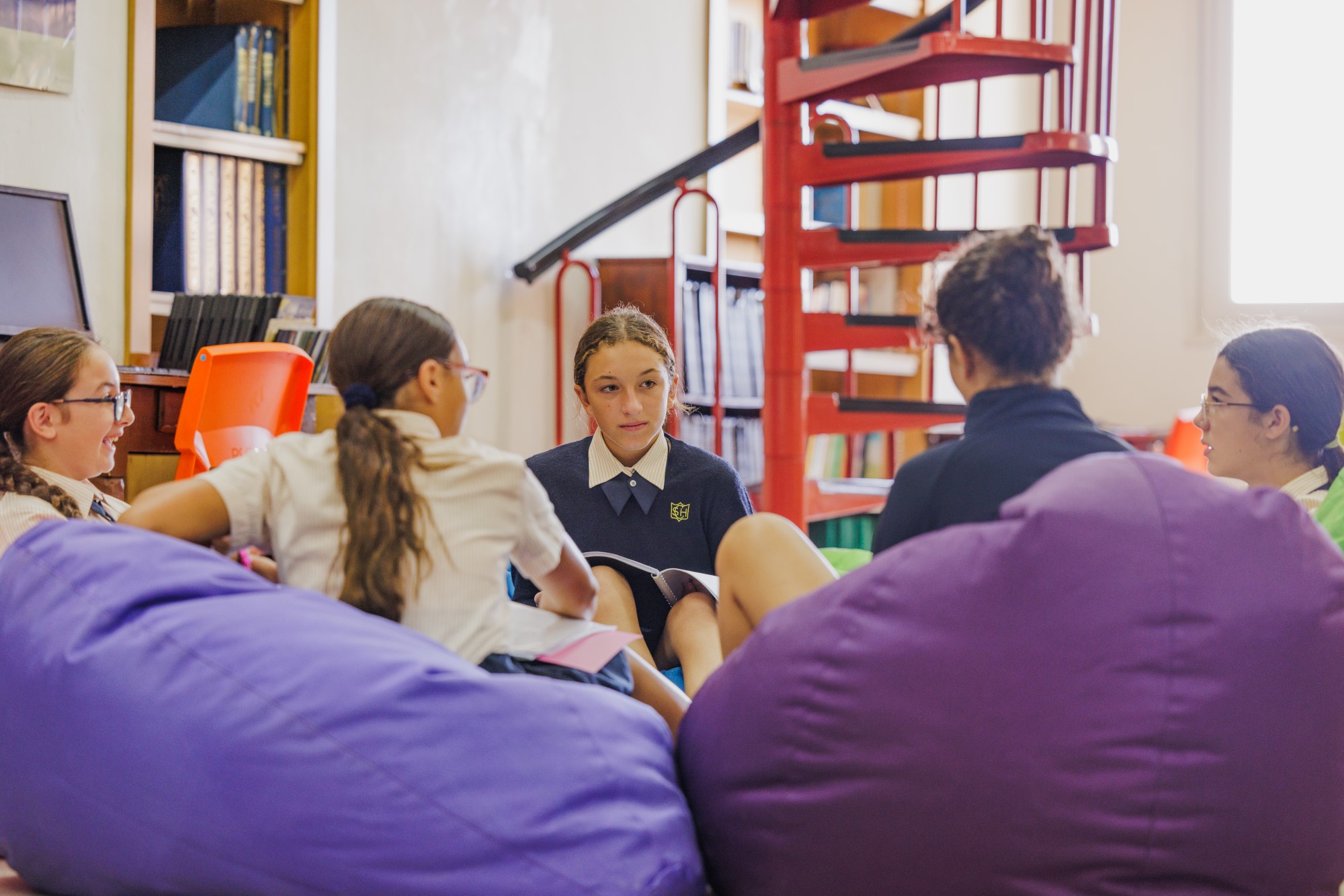At Sacred Heart College we are seriously committed towards the fostering of an environment that safeguards the mental, social and emotional wellbeing of every member of the College community.
Guidance and Support

Student guidance is a key facet of our students’ formation at Sacred Heart College. At every stage of their education, students are supported by designated staff within both the Junior School and the Senior School. The guidance teachers in the respective schools provide personal and group guidance and our students are encouraged to approach them whenever they feel it is necessary to do so. This gives each one of our students the comfort that she is accompanied by educators in her daily life at the College. Guidance teachers sustain students who may be experiencing difficulties with friendship dynamics, peer pressure or self-esteem and decision-making. They also support students with study skills, dealing with stress, anxiety, or any concerns and challenges they may be facing. Recurring themes arising from the sessions held by guidance teachers with students are incorporated into PSCD lessons.
In the Senior School, guidance teachers retain a teaching load alongside their guidance duties. We feel this keeps them in touch with the day-to-day experience of students in the classroom and at the School generally. Subject and career choices constitute an important part of the guidance services on offer in the Senior School. Accordingly, guidance teachers also support students by providing curricular support in relation to the choice of subject options in Year 9 as well as information about post-secondary courses and institutions through various activities, materials, and seminars at school level.
Conflict Resolution and Anti-Bullying Approaches
Conflict resolution and related issues are an important aspect of our approach to wellbeing at the College, and the Junior School and the Senior School both address it in an age-appropriate manner. The College embraces a zero-tolerance approach to bullying in whichever form, be it verbal, physical, emotional, or cyber-bullying. Each School’s Anti-Bullying team is composed of the guidance teacher, PSCD teacher/s, SLT member and DSO. The team intervenes when incidents are reported and maintains adequate records for evaluative purposes. This process guarantees that any form of bullying is thoroughly addressed according to each unique situation and ensures that everyone’s safety is safeguarded without resolving to a one-size-fits-all approach. The College underscores the importance of a formative approach for all stakeholders in terms of conflict resolution and prevention. Indeed, appropriate social behaviour is firmly established as part of the school culture through the goals of the College and a widespread anti-bullying campaign.


Designated Safeguarding Officer (DSO)
The Junior School and the Senior School each have a DSO to ensure the safeguarding and wellbeing of all students and educators at the College. The DSO in either School is the first point of call for members of staff, students, or parents who express issues of concern. The DSO works closely with the PSCD and guidance teachers as well as the psychosocial team to ensure that our students are secure and have a fulfilling and safe experience at school.
The Psychosocial Team
The Junior School and the Senior School each have a psychosocial team made up of professionals assigned to our school by the SfCE (The Secretariat for Catholic Education) as well as our own College wellbeing personnel. The SfCE makes available to the College a School Counsellor, a Social Worker, an Educational Psychologist and a Head of Department for Inclusion (previously known as the INCO). These professionals are complemented by our school-based professionals: the DSO (Designated Safeguarding Officer), guidance teacher/s and Head of School.
Each team has a monthly scheduled meeting to discuss students at risk and determine ways through which they can be supported in any situations that might arise. Other professionals from the SfCE can also be brought in to offer age-appropriate, specialised support when and where necessary in the areas of occupational therapy, the autism spectrum and/or dyselxia-type challenges. Play therapists, particularly in the Junior School as well as youth workers and career advisors, are also called upon to offer their services as often as required.
